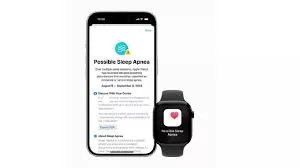In a recent survey by the University of South Australia, startling findings reveal that around 75% of Australians have experienced adverse reactions to medications, yet fewer than half reported these incidents to a doctor or the Therapeutic Goods Administration (TGA). The study, involving 544 adults taking one or more medications, discovered that only 36% of those affected by adverse drug reactions (ADRs) reported their experiences through various channels, including phone, email, in person, or via the TGA website. The results were published in the European Journal of Clinical Pharmacology.
The survey highlights a critical gap in ADR reporting, primarily due to a lack of awareness about the digital tools available for this purpose. The UniSA researchers emphasize that integrating these tools into commonly used health care apps could significantly improve reporting rates. With up to 3% of all hospital admissions in Australia attributed to medication-related harm—costing the health care system approximately $1.4 billion annually—the need for better reporting mechanisms is evident.
Ph.D. candidate Mohammed Dedefo, lead researcher of the study, points out that international evidence suggests digital tools can double ADR reporting rates. “Strengthening vigilance around medication-related harm is essential for monitoring medicine safety in various settings,” Dedefo says. He adds that many people do not report ADRs either because they do not perceive them as serious or they are unsure how to report them.
Associate Professor Lisa Kalisch Ellett, a co-author of the study, suggests that integrating digital reporting options into widely used health care apps and patient portals could address the issue. “Leveraging social media and other online platforms would help raise awareness about the importance of reporting ADRs,” says Assoc Prof Kalisch Ellett. This approach could enable the TGA to conduct more comprehensive assessments, issue warnings to health professionals and consumers, and update or withdraw medications in severe cases.
Currently, the reporting system developed by the TGA is not widely known among consumers and is predominantly utilized by pharmaceutical companies. Enhancing public knowledge and accessibility through digital tools could bridge this gap and lead to better medication safety outcomes.
For more details, refer to the study: Dedefo, M. G. et al. “Consumers’ Knowledge and Experiences of Adverse Drug Reaction Reporting in Australia: A National Survey,” European Journal of Clinical Pharmacology (2024). DOI: 10.1007/s00228-024-03729-y.












